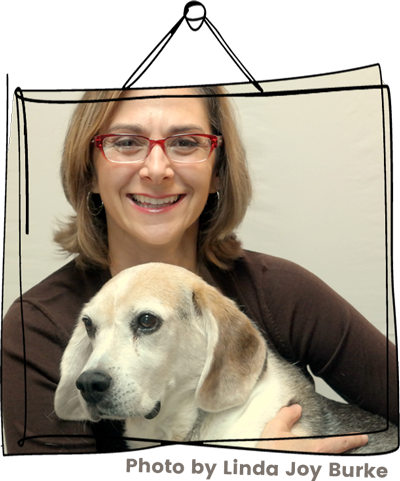
Becky Herzog is hosting Poetry Friday this week. Click on SLOTH READS to go to Becky’s round-up of this week’s Poetry Friday posts.
Happy Poetry Friday, everyone! Today, I have an interview with one of my favorite people in the children’s literature community, author Tricia Springstubb.
Thanks to Tricia for giving away a copy of her middle grade novel The Most Perfect Thing in the Universe. Leave a comment and I will draw a winner (U.S. only, please) before next week’s Poetry Friday.
Tricia and I met years ago, when we were seated together at a book festival. (As a debut author, I was in awe of her stack of published middle grade and chapter books!) Tricia’s kind heart and thoughtfulness are reflected in such novels as What Happened on Fox Street, Every Single Second, and her 2021 book, The Most Perfect Thing in the Universe. Read Tricia’s bio at the end of this post.
Here is how Goodreads describes The Most Perfect Thing in the Universe:
Eleven-year-old Loah Londonderry is definitely a homebody. While her mother, a noted ornithologist, works to save the endangered birds of the shrinking Arctic tundra, Loah anxiously counts the days till her return home. But then, to Loah’s surprise and dismay, Dr. Londonderry decides to set off on a perilous solo quest to find the Loah bird, long believed extinct. Does her mother care more deeply about Loah the bird than Loah her daughter?
Things get worse yet when Loah’s elderly caretakers fall ill and she finds herself all alone except for her friend Ellis. Ellis has big problems of her own, but she believes in Loah. She’s certain Loah has strengths that are hidden yet wonderful, like the golden feather tucked away on her namesake bird’s wing. When Dr. Londonderry’s expedition goes terribly wrong, Loah needs to discover for herself whether she has the courage and heart to find help for her mother, lost at the top of the world.
Since it’s Poetry Friday, Tricia picked the most perfect companion poem (by Mary Oliver) to read alongside her book. You will find that nested underneath the interview.
5 Questions for author Tricia Springstubb
1. One of my favorite things about The Most Perfect Thing in the Universe is the narrative voice. It’s third person, but also has intrusive moments, reminding the reader to pay attention! The narrator isn’t a character in the story, but they have a character of sorts. How did you develop this narrative voice?
You are so perceptive to begin with this question! It’s certainly a different voice for me and I’m not sure where it came from. I nearly always write in close third person, and I wanted to break out of that, but I’ve never felt comfortable in first person, and omniscience is so tricky. What seemed to work was that, even as I wrote my sweet, steadfast Loah, I’d let this wry, slightly mischievous voice have its say too. Sort of a dear reader voice, sympathetic but also with a broader world view. I have to say, it was a lot of fun!
2. Loah is an introvert and a homebody, while her scientist mother is adventurous, a risk taker. Their contrasting personalities set the events of the story in motion (Mom wants to extend her research trip, while Loah wants her to come home). Can you talk about their relationship?

House Sparrow. Image from Audubon.org.
They are so different! If they were birds, Dr. Londonderry might be an Arctic tern, migrating from pole to pole every year, while Loah would be a house sparrow, never straying far from the tree where she hatched. When her mother sets off on a new expedition rather than come home, Loah is devastated and wonders if her mother loves birds more than she loves Loah. At the same time, she feels guilty because she knows how important Dr. Londonderry’s work is for the planet. Dr. Londonderry is also torn–not that she is ever going to change! I wanted to explore this dilemma of balancing work and life that so many families face. I also wanted to write about how we can find love and support in places outside our nuclear families, the way Loah does with Ellis and the Rinkers.
3. I loved the Rinkers, Loah’s live-in caretakers. They remind me a little bit of Matthew and Marilla Cuthbert in the Anne of Green Gables books! Why was it important to give Loah a non-traditional family for this story?
I revised this story more times than I want to remember, but the characters Loah and Theo stayed the same in every version. Miss Rinker, on the other hand, started off much meaner than she wound up. Try as I will to write an irredeemable character, I always fail! The Rinkers have cared for Loah since she was a baby, but as the story unfolds, roles shift and Loah begins to take care of them. She learns her own strength, and flinty old Miss Rinker learns to accept help and love. I wanted to echo, on this personal level, what Dr. Londonderry teaches Loah about the natural world: how interdependent all living creatures are, how essential and important even the tiniest of us is to the whole. We can find and forge connection in places we never expected.
4. You and I were on a panel about the importance of setting in middle grade several years ago. How did you go about creating the unique house for this story? How does the house itself reflect what’s going on in Loah’s life?
Remember that panel? It was so, so great! One reason I loved it, besides working with you, was that a sense of place is always important to my work. Usually, I create a whole neighborhood complete with a map, but with PERFECT, Loah’s house is more or less her entire homebody world. It’s old and dilapidated, the kind of house other kids call spooky, but to Loah it’s where she belongs. We each define home in our own way! Here’s a little quote from the book: “Every nestling loves its nest, whether it’s tidy or slapdash, perched on the edge of a perilous cliff or tucked in a potted plant on a backyard deck. Some hatch in nests stolen from other birds, yet what do they care? Every bird loves the place its mother lays it.”
Also–I wanted a crooked turret where something mysterious could be going on!
5. When she was small, Loah liked pretending to be an egg (which fits perfectly with the bird themes in this story). After the events of the novel, do you think Loah still plays “Egg” sometimes? Why or why not?
I think Loah might be wistful for Egg, the way kids are for favorite toys or games they’ve outgrown, and maybe she’ll try to play it a few more times, when she needs comfort. But it won’t be the same. I won’t give away what the most perfect thing in the universe is, but I think it’s an apt metaphor for growing up–the things we have to leave behind in order to go forward. By the end of the story, Loah is nowhere near as helpless as she was at the beginning. She’s teetering on the edge of the nest, not quite ready to fly but definitely testing her beautiful wings!
As a companion to Loah’s story, Tricia recommends reading Mary Oliver’s poem, “Wild Geese.”
WILD GEESE
By Mary Oliver
You do not have to be good.
You do not have to walk on your knees
For a hundred miles through the desert, repenting.
You only have to let the soft animal of your body
love what it loves.
Tell me about despair, yours, and I will tell you mine.
Meanwhile the world goes on.
Meanwhile the sun and the clear pebbles of the rain
are moving across the landscapes,
over the prairies and the deep trees,
the mountains and the rivers.
Meanwhile the wild geese, high in the clean blue air,
are heading home again.
Whoever you are, no matter how lonely,
the world offers itself to your imagination,
calls to you like the wild geese, harsh and exciting —
over and over announcing your place
in the family of things.
Listen to Mary Oliver read the poem at Brain Pickings.
Tricia is the author of many picture books, chapter books, and novels, including Khalil and Mr. Hagerty and the Backyard Treasures, the Cody series, and the middle grade novels Moonpenny Island and Every Single Second. The Most Perfect Thing in the Universe is a Junior Library Guild Gold Standard selection and has received starred reviews from Kirkus and Publishers Weekly. Tricia has worked as a Headstart teacher and as a library associate in the children’s room of a public library, and she is a frequent speaker at schools and conferences. She lives, writes, gardens and plays with her grandbabies in Cleveland, Ohio.







Laura, what a sweet interview with Tricia. I loved learning more about Loah and her mother. It sounds like a delightful book. “Wild Geese” was a lovely read today–a beautiful poem by Mary Oliver. Thanks for this post.
Hi, Denise. Tricia has a unique writing style. Her books have the feel of classic middle grade novels.
Thank you for this lovely interview, I have added this book to my TBR list.
Thanks, Amy. I think you’ll love this one.
What a great post! I’m embarrassed to say I do not know this author — and I should! I’ve gone to good reads and marked all her books as “want to read.” I love the idea of a character being a homebody. There are a LOT of those in the MG age group. What a great conflict for a story…mother-daughter relationships can be tough! My mom, who I loved dearly, was a science-y person and I was much more sensitive, a poetry-type person. It sounds like this book tackles that kind of dynamic.
Thanks, Linda. My favorite Springstubb novel (after The Most Perfect Thing in the Universe) is What Happened on Fox Street. This book does have a lot to say about accepting the people you love, even when they make decisions you would not make.
This book sounds wonderful and sounds just a bit like my daughter and me. Thank you for the lovely interview. I always enjoy being able to peek behind the curtain a bit and see an author’s thought process for different writing decisions. Have a good week!
Thanks for hosting today, Becky. It *is* wonderful. It might make a nice read aloud (or read side by side) to share with your daughter.
Tricia’s story reels me right in, and I’m fascinated by the narrator-character voice… Parts of her story remind me of David Elliot’s book, “Evangeline Mudd and the Golden-Haired Apes of the Ikkinasti Jungle, I”m definitely looking forward to reading Tricia’s book, thank you both, and thanks also for the Mary Oliver poem!
The narrator of this novel reminds me of what my editor once said: A reader doesn’t always need a book to start with a bang. They need to know they are in the hands of a good storyteller.
Thank you, Laura, and thank you, readers! I loved doing this interview, as I hope you can tell–talking to Laura is always a treat as lovely as birdsong.
Thank you, Tricia. I’m so glad I got to chat with you about this novel. It’s the kind of story I can see kids reading over and over again.
Thanks for this interview. You described Tricia Springstubb’s writing perfectly: “Tricia’s kind heart and thoughtfulness are reflected.”
Thanks for dropping by, Mary Lee. I love Tricia’s books. She understands the turmoil and hopefulness of this age group so well.